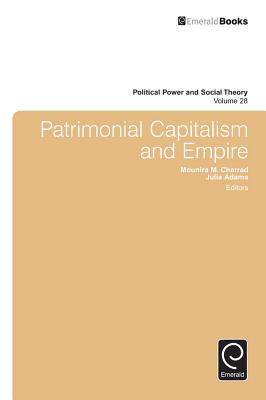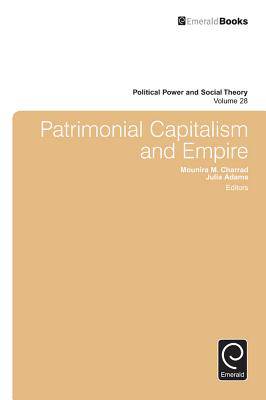
- Afhalen na 1 uur in een winkel met voorraad
- Gratis thuislevering in België vanaf € 30
- Ruim aanbod met 7 miljoen producten
- Afhalen na 1 uur in een winkel met voorraad
- Gratis thuislevering in België vanaf € 30
- Ruim aanbod met 7 miljoen producten
Zoeken
Patrimonial Capitalism and Empire
€ 275,45
+ 550 punten
Omschrijving
There is today a new interest in empires past and present. Scholars seek fresh ways of understanding a form of power far older than the modern nation state. Others see empire, not long ago assumed to be a mode of governance on the way out, as having a surprising new lease on life, and want to better understand the reasons why. This volume focuses on the interconnected formations of patrimonialism, colonialism/empire and capitalism. Leading scholars analyze patrimonial politics in empires in regions throughout the world, including the United States, Latin America, China, South Africa, North Africa, West Africa, India, Australia, Malaysia, the Philippines, and Indonesia. The articles show that patrimonial practices, which often form the backbone of empire, are present throughout history, including in global capitalist modernity. This volume will appeal to students of politics, and to a multidisciplinary scholarly audience in political sociology; historical social science; history; social theory, and area studies.
Specificaties
Betrokkenen
- Uitgeverij:
Inhoud
- Aantal bladzijden:
- 304
- Taal:
- Engels
- Reeks:
- Reeksnummer:
- nr. 28
Eigenschappen
- Productcode (EAN):
- 9781784417581
- Verschijningsdatum:
- 1/04/2015
- Uitvoering:
- Hardcover
- Formaat:
- Genaaid
- Afmetingen:
- 152 mm x 229 mm
- Gewicht:
- 576 g

Alleen bij Standaard Boekhandel
+ 550 punten op je klantenkaart van Standaard Boekhandel
Beoordelingen
We publiceren alleen reviews die voldoen aan de voorwaarden voor reviews. Bekijk onze voorwaarden voor reviews.










